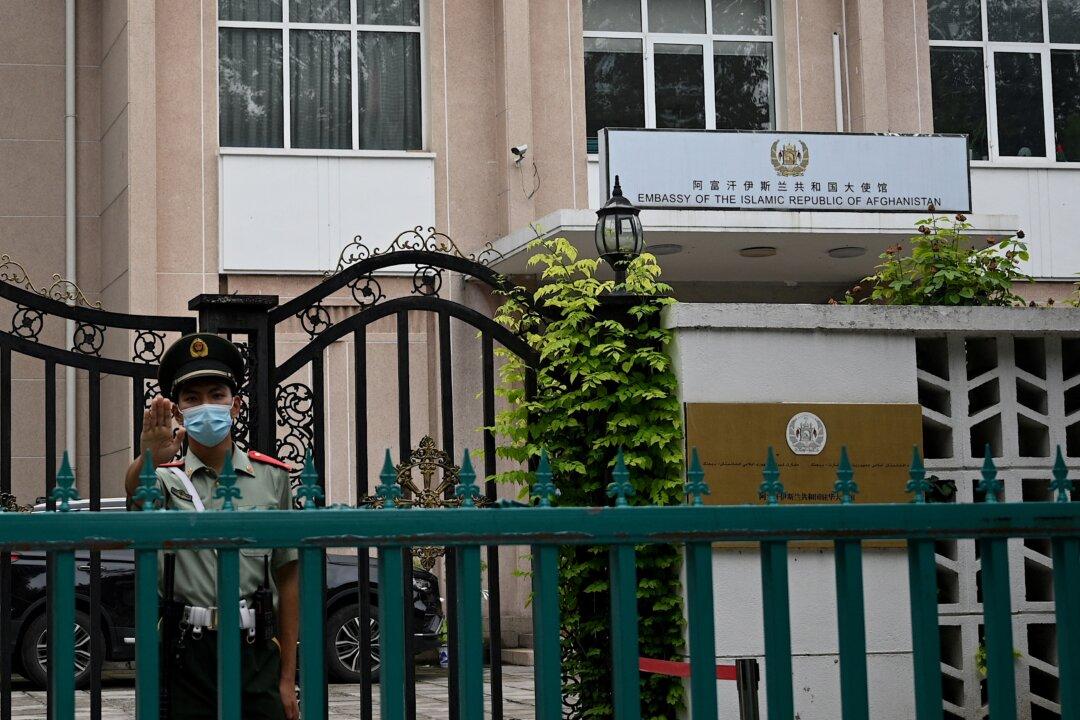The Chinese regime says the United States can’t simply walk away from the Afghanistan chaos, in its latest salvo directed at Washington amid an aggressive propaganda campaign leveraging the crisis.
Chinese foreign ministry spokesperson Wang Wenbin on Aug. 23 cast the United States as the “chief root cause and biggest factor” for the unfolding instability in Afghanistan, saying that the United States “should not simply take to its heels” but should instead provide reconstruction and humanitarian aid.





